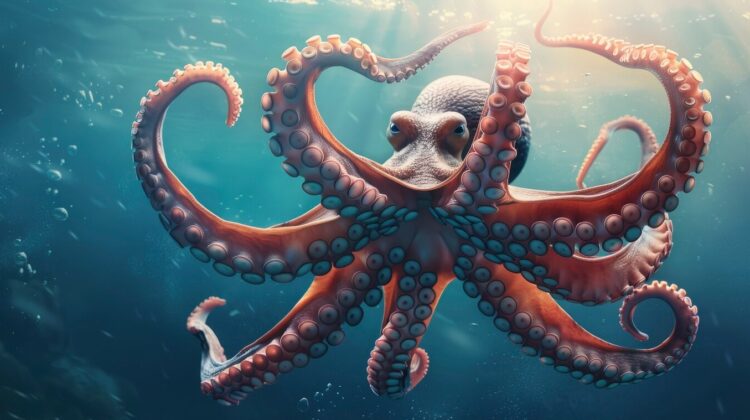
Earth is no stranger to extinctions. As scientists have discerned from fossil records, species on Earth have already passed through five mass extinction events in the planet’s lifetime, including the last mass extinction roughly 65 million years ago that wiped out the dinosaurs.
Now, scientists believe we might be in the midst of another. Humans’ impact on biodiversity—via both habitat loss and the effects of man-made climate change—has caused irreversible damage to wildlife, argues a 2023 paper published in the journal PNAS. Fifty percent of species could be lost by 2080 if humans do not curb greenhouse gas emissions and deforestation, suggests a 2022 paper in Nature.
It’s also possible that sudden extinction events such as nuclear war or even another massive asteroid could wipe out these species—including humans and apes—even sooner. That begs the question: if our days are numbered, what species might rise up from the ashes to take our place?
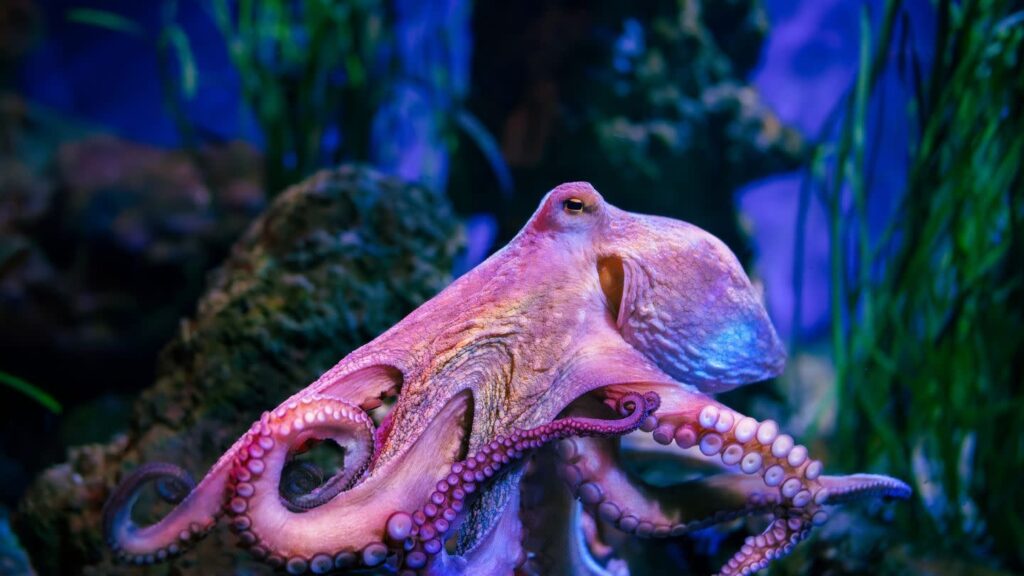
According to biologist Tim Coulson, Ph.D., who researches ecology and evolution at the University of Oxford, our unexpected successors may be found on today’s sushi menus.
“There are very many species of octopus, not one species [like] humans…and they live in a wide variety of habitats including deep ocean habitats as well as coastal habitats,” Coulson says. “Although some populations and some species may fare badly, I think there’s an opportunity for others to survive, radiate, [and] to diverge over evolutionary time to colonize a wide variety of habitats, including coastal habitats.” Plus, it would help the octopus cause if humans stopped hunting and eating them, Coulson says.
While this idea may seem improbable on its face (and Coulson is the first to admit there’s a lot of scenarios where octopuses don’t rise to power), it wouldn’t be the first time that an ocean dwelling species took advantage of a land species extinction to adapt and evolve. In fact, that’s exactly how humans’ mammal ancestors rose to prominence, says Andrew Whiten, Ph.D., a professor of zoology and psychology at the University of St. Andrews.
“One can imagine any number of scenarios where in some apocalyptic post-human world other species currently quietly leading their lives come to be the dominant ones on the planet, like our little mammalian ancestors paved the way for us humans after the fall of the dinosaurs,” Whiten says.
Octopuses also have a number of advantages already that could set them up for developing more advanced intelligence, Coulson says. For example, certain species of octopus have been observed using tools in the wild, such as carrying coconut shells as a form of armor and shelter, and have used tools to solve mazes in a laboratory setting. Coulson says that octopuses in captivity have even been seen escaping their tanks to “visit” other octopuses in nearby tanks.
The kind of intelligence that makes this possible is a little different from how we imagine human intelligence, says Andy Dobson, Ph.D., professor of ecology and evolutionary biology at Princeton University. Instead, an octopus’s intelligence may be almost more computer-like.
“Octopus seem to have highly evolved nervous systems, although I’m not sure we’d call the dense concentration of neurons that connect their eight limbs and huge eyes a brain, [it’s] more a massive data processing center,” Dobson says. “Their intelligence derives from having multiple limbs and two huge eyes to sense their environment.”
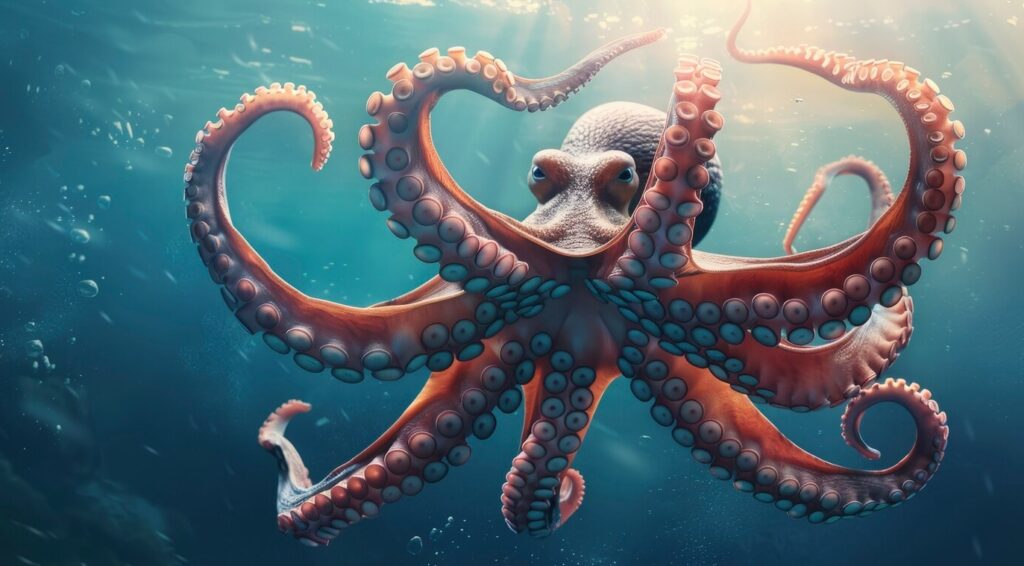
While octopuses are not the only species to demonstrate high levels of intelligence, Coulson says that dexterity is a key attribute that sets octopuses apart. “They’re highly dextrous [and] able to use their eight limbs to manipulate all sorts of objects,” he says. “And although crows and various birds are able to bend bits of wire in their beaks or drop stones into water to raise water levels and reach food, they haven’t got the dexterity that octopuses appear to.”
Unlike humans, octopuses lack vertebrae and would likely develop civilizations in the ocean instead of on land. But to develop an octopus metropolis, Coulson says that they will first need to harness a source of cheap energy. For coastal dwelling octopus, Coulson suggests this may be possible by harnessing tidal power. Deep sea octopus may be able to harness power from hydrothermal vents as well, but this would likely prove more challenging, he says. With growing intelligence and energy on their side, octopus would then face their biggest hurdle to evolutionary prominence: sociality. Octopus have a reputation of being loners and even, at times, cannibals as this video depicts. This behavior would likely need to undergo some big changes in order for octopuses to congregate in any type of octopus cities, says Peter Godfrey-Smith, Ph.D., a professor of history and philosophy of science at the University of Sydney.
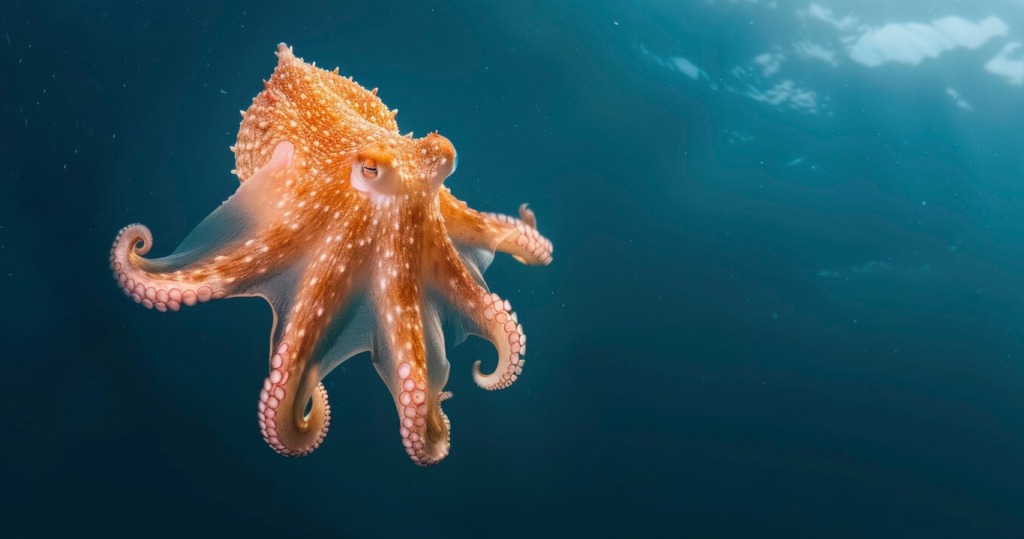
“Octopuses are not well set up to build a human-like society because of their social habits—the fact that they are not likely to develop a culture,” Godfrey-Smith says. “When I talk about ‘culture’, I mean the ability to learn from others in your society… for octopuses, the first move they’d have to make is to become more social, and also bring up their young differently.”
Godfrey-Smith explains that octopuses inherit very little culture—at least, as we humans experience it—from their parents at birth as both are nearly non-existence in their upbringing. To develop a closer knit society, octopuses may need to develop more intergenerational connections, he says.
As these kinds of social changes have not yet evolved in octopuses’ last 50 to 100 million years of existence, it’s unlikely that this will change anytime soon, Dobson says. But in their defense, scientists have observed in the last decade that some octopus species may be more social than others, with some octopuses living in groups of ten or more.
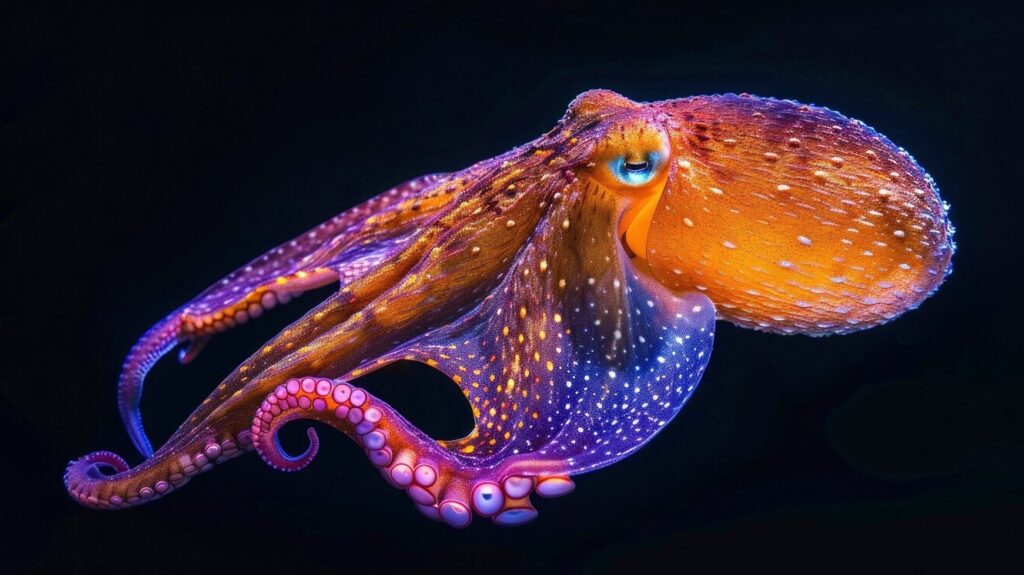
Unfortunately, it’s also highly likely that our human impact on octopuses will limit their evolutionary chances right out of the gate, Dobson says. Pollution, ocean warming, over-harvesting, and microplastics may have already caused harm to octopuses that we don’t yet fully understand, he says.
If not octopuses, then Dobson says that nematodes might rise as the unlikely victor of Earth’s sixth mass extinction. As for Godfrey-Smith, his money is on cockatoos.

Leave a Reply